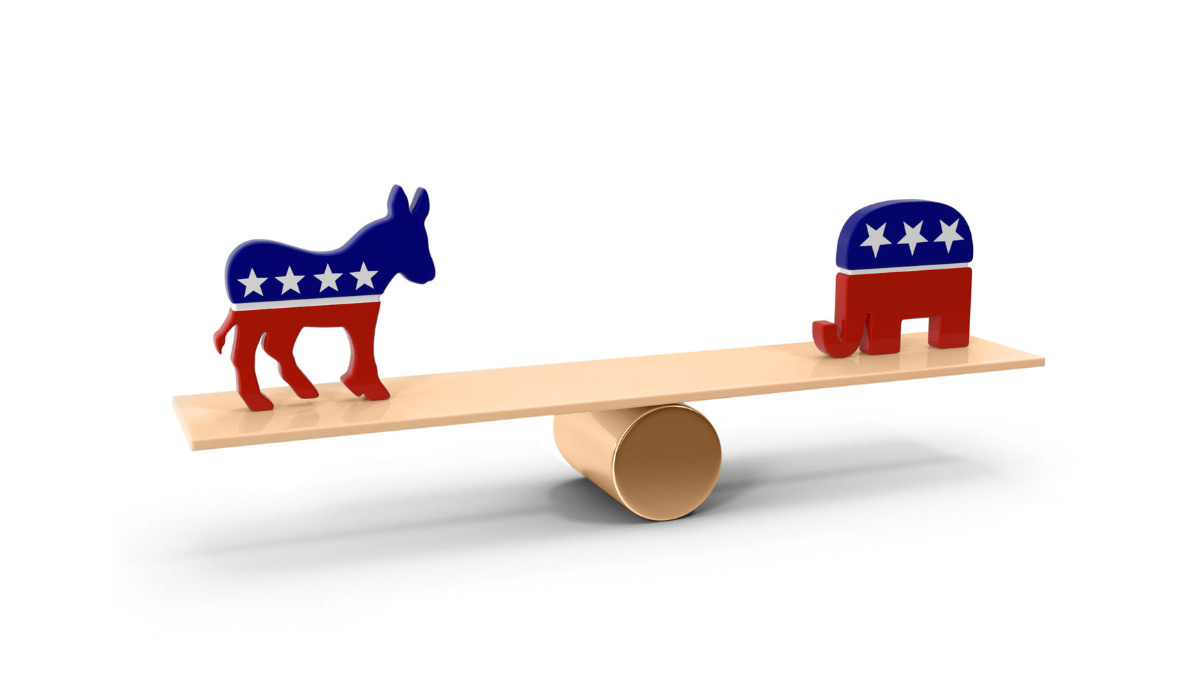The 2016 campaign set a new standard for interruptions and other crimes against civility by candidates. The primaries were full of such rudeness, particularly the Republican free-for-alls. The presidential debates provided additional examples. Even the vice-presidential debate was described by one pundit as an “interruptionfest.”
One side would call such interruptions beyond-the-pale rudeness proving unfitness for office, while the other would cheer them as necessary to make good points. And things are not improving, judging from the hyper-hypocrisy illustration of Democrats who lauded John McCain for not being blindly partisan screaming their intense partisanship at the opening of Brett Kavanaugh’s Supreme Court hearing. So how should we view such political interruptions and other examples of rudeness, now that Americans are facing another election that will be in large part a response to the 2016 outcome?
The structure of logical arguments offers a clue. They run from premises to conclusions—A implies B implies C .... implies Z. Correctly structured, if the premises are true, the conclusion must be true. However, if a premise or step in an argument is false, factually or logically, even if every succeeding step is valid, the conclusion need not be correct.
Consequently, when someone observes an important false premise or errant step in an argument, logic and a desire for better real-world results both suggest immediately focusing on where and how such premises depart from truth. After all, if people can come to some resolution with respect to the contested step, we can move on in our discussion, and potentially even compromise or agree, in the end. Without that step, further discussion may yield a great deal of stomach acid, but little fruit.
This is particularly important when the pivotal step involves the exact reverse of the truth, which can not only invalidate the conclusion, but actually confirm the opposite conclusion. That is, while statement A, if true, may imply Z, when A is false, it may exclude Z as a possibility.
For example, protectionism can save some jobs, and the income derived from them, from superior competitors. However, protectionism does not create jobs and wealth for the economy, as protectionists assert, or any of the consequences that would follow. “Saving” certain jobs eliminates others, including those in export industries, those facing higher input costs and those whose jobs would have been created from the greater wealth unrestricted trade would produce. That shifting of resources from where people’s circumstances and preferences would lead them voluntarily to where government favoritism dictates also destroys societal wealth.
We must also consider what happens if we wait politely until the end of a disputed chain of reasoning. Think back on your personal experiences. How well did you remember precisely what was said at step B, where disagreement began, multiple steps (possibly also in question) and many minutes later? How well did your recollections match those of your opponent(s)? What was said and why we disagree is easily lost, generating still more uncivil bickering. And such problems are only worsened when, as today, one side often insists that certain words or phrases should not be taken at face value, but as “dog whistles” for hidden and nefarious meanings.
The upshot is that even though interruptions feel rude (because no one likes being sidetracked before reaching their intended conclusions), they may be more justifiable in political debate than in other circumstances. When the direction of the country is at stake, the benefits of more effectively revealing core policy disagreements exceed those in day-to-day conversations. Consequently, we may want to allow more leeway for rudeness when disputing over government policy. We do not want rudeness to become the issue deciding political choices, rather than logic and evidence.Of course, citizens still must judge whether and when interruptions are sufficiently justified. There are many instances that are not. For example, when one person just talks over another until they quit speaking, interruptions are unjustified. The same is true for interruptions whose purpose is to derail a line of thought, inject misrepresentations that will move us further from the truth or make ad hominem attacks. Electorally punishing such assaults on the possibility of advancing Americans’ well-being, by undermining the potential for increased clarity, remains appropriate.
There will be always be vast differences of political opinion expressed in elections. And citizens will fight over the relevant facts. That process can certainly produce rudeness. But it would be far better to fight over such matters, even rudely, than to let real issues be hijacked into battles over whose rudeness most disqualifies them and their positions from consideration.








